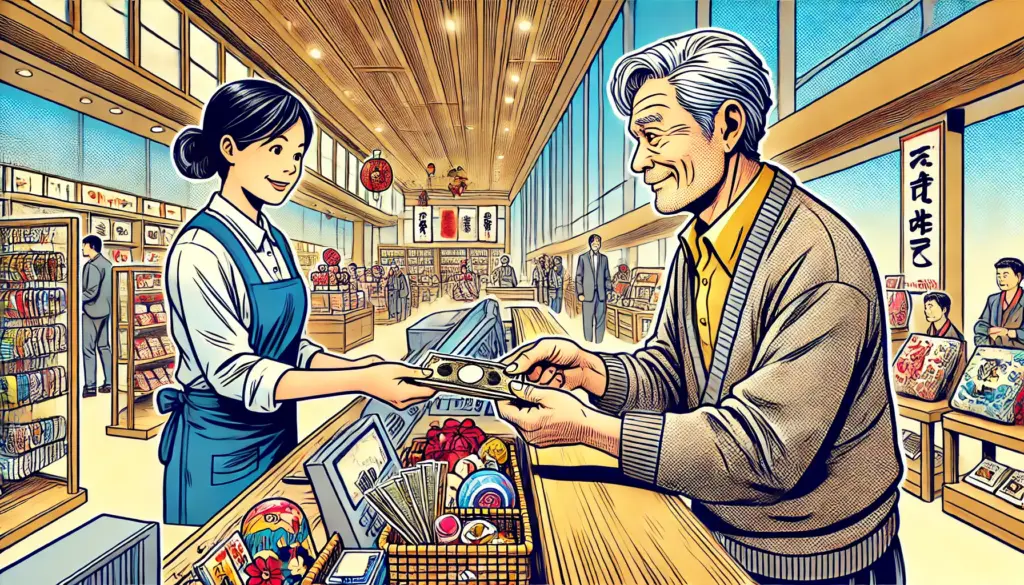
🎰 Introduction: The Elephant in the Room
In Japan, gambling is technically illegal—yet walk down almost any urban street and you’ll hear the unmistakable ding ding ding of pachinko parlors. These neon-lit venues draw millions of players annually and generate revenues rivaling entire national economies. But if gambling is outlawed, why is pachinko so widespread? More importantly, why is it so openly tolerated by authorities?
The short answer: it’s all about legal gray zones, political influence, and a uniquely Japanese workaround known as the “Three-Store System.” But the full story is much more complex—and much more revealing about Japan’s political and societal structures.
🧩 What Is Illegal Gambling in Japan?
Under Japan’s Criminal Code (Article 185), gambling is largely prohibited, with exceptions made only for government-approved activities like lotteries (takarakuji), horse racing (keiba), and certain motor sports. Casino-style gambling remains illegal for private operations—though integrated resorts with tightly regulated casino elements are slowly emerging.
Yet despite this strict legal stance, there are over 7,500 pachinko parlors operating nationwide as of 2024. So how do they exist legally?
🕵️♂️ The Three-Store System: A Legal Loophole
At the heart of the pachinko industry’s legal survival is the so-called “Three-Store System” (santen hōshiki), a peculiar method that allows these establishments to operate without technically violating gambling laws.
Here’s how it works:
- Player wins balls or tokens at the pachinko parlor.
- Player exchanges them for prizes, often something trivial like a box of tissues or a metal plaque.
- Player takes the prize to a nearby, independently operated “exchange center”, which buys the prize for cash.
- The exchange center then sells the tokens back to the pachinko operator through a wholesale company.
The pachinko parlor never directly gives players money—so, in theory, no gambling occurs. But in practice, it’s a thinly veiled form of cash-based betting.
🛑 Why Don’t the Police Crack Down?
While the system seems blatantly manipulative, Japanese police rarely intervene. Why?
- Legal Gray Zone: Because the transactions are technically separate, authorities argue it doesn’t meet the legal definition of gambling.
- Administrative Classification: Pachinko is categorized as a form of “entertainment” rather than “gambling” under current regulatory frameworks.
- Revenue Dependence: Local governments and police departments benefit indirectly. The pachinko industry creates jobs, pays taxes, and even donates to community causes.
- Retired Police Employment (Amakudari): Many former police officials are hired by pachinko-related businesses, creating a soft “don’t touch” culture.
This tacit approval by law enforcement ensures the industry continues to operate in broad daylight.
🏛️ Political Ties and Campaign Donations
The pachinko industry is also deeply intertwined with Japan’s political landscape. Major companies in the industry contribute sizable donations—often legally through affiliated organizations or indirectly through influential groups—to political campaigns, particularly to members of the ruling Liberal Democratic Party (LDP).
In 2023, investigative reports revealed that several lawmakers received “consulting fees” or donations from entities linked to pachinko conglomerates. These relationships help secure favorable policies and maintain the industry’s protected status.
It’s no wonder that attempts to clamp down on pachinko are few and far between. Even politicians who understand the contradiction may choose silence over confrontation.
🎯 Societal Blind Spots: Addiction and Stigma
Beyond legality and politics, pachinko has quietly become a societal norm. For decades, it was seen as a harmless pastime for the working class, the elderly, and the underemployed.
But this normalization hides a growing problem: gambling addiction. Estimates suggest that over 3 million Japanese may suffer from gambling-related disorders—many of them pachinko players. Unlike other nations, Japan offers limited public support for such individuals, in part because the activity isn’t legally classified as gambling.
This disconnect makes it difficult to generate public outrage or pressure for reform.
📉 The Decline of Pachinko… or Is It?
Interestingly, the pachinko industry is slowly shrinking. At its peak in the late 1990s, there were more than 18,000 parlors. Today, that number has dropped by over 50%. Younger generations are more drawn to digital entertainment and mobile gaming, and pachinko struggles to keep up.
However, rather than disappearing, the industry is consolidating. Big players are investing in more sophisticated machines, entertainment complexes, and even foreign ventures like Korean-style casinos. With fewer but larger businesses, their political influence may, paradoxically, increase.
🔮 Will Japan Ever Regulate Pachinko Like Real Gambling?
There have been discussions about bringing pachinko under the same umbrella as casinos and sports betting to allow for regulation, taxation, and better consumer protections. But resistance is fierce—from both within the industry and from politicians who benefit from its ambiguous status.
Unless there is a major political shift or public scandal, Japan is unlikely to radically change its stance in the near future. Pachinko will remain the “elephant in the room”—too big to ignore, too embedded to uproot.
✍️ Final Thoughts: Legal Fictions and Political Convenience
The story of pachinko in Japan is not just about gambling—it’s about how institutions use technicalities and loopholes to maintain the status quo. It’s a mirror that reflects Japan’s complex interplay of law, culture, and politics.
While the rest of the world may see pachinko as clearly gambling, Japan continues to treat it as a game. But for those trapped in addiction, or watching the wheels spin in political backrooms, it’s a game with very real consequences.



















































